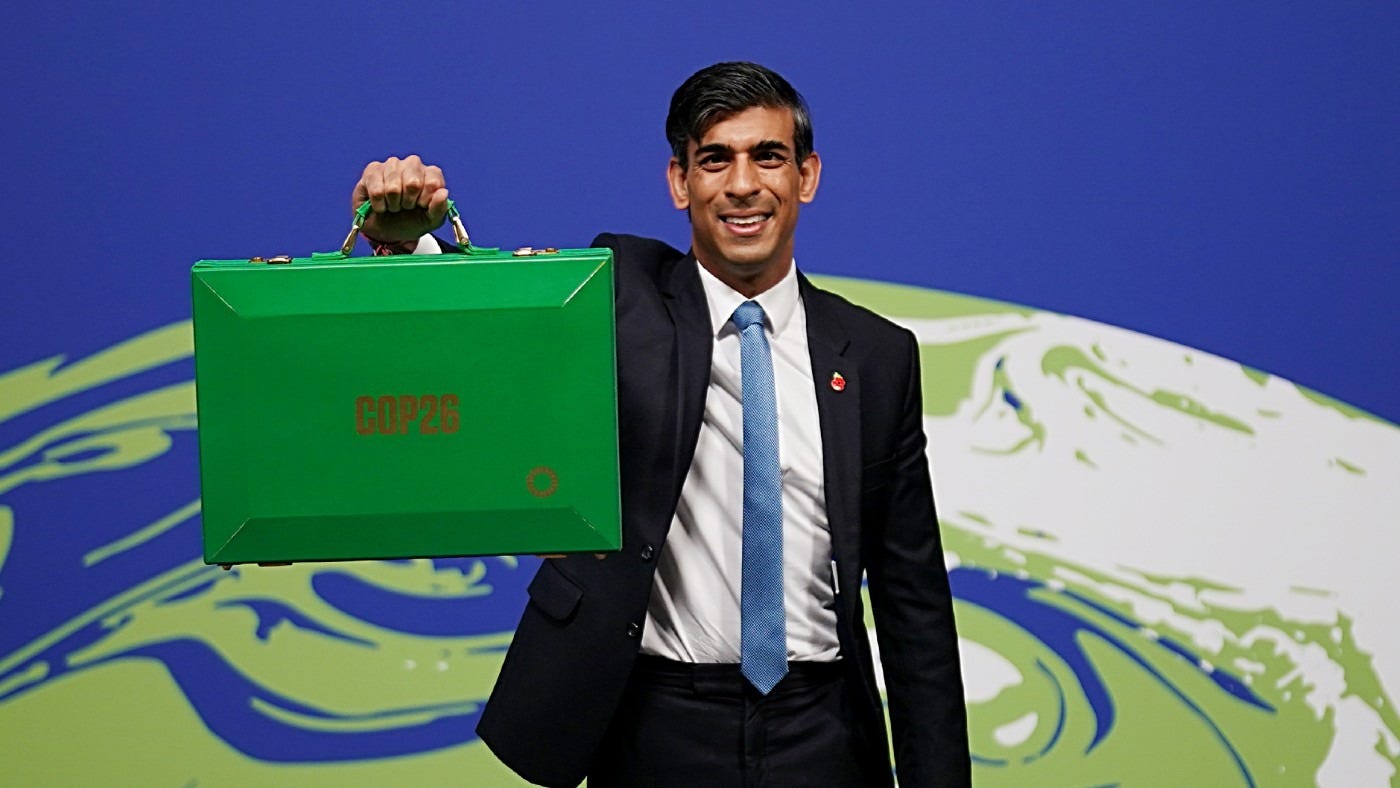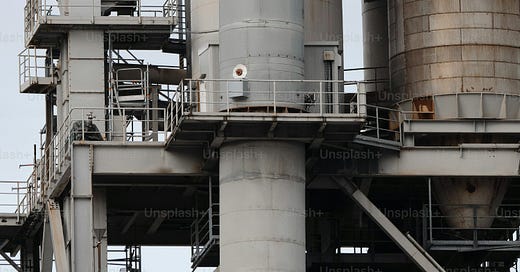As we’ve covered before, trying to replay Rachel Reeves’ 2022 rhetoric back at her in 2024 hasn’t proved a great strategy. The economy, Labour’s goals, and her messaging have changed a lot since promising to be the UK’s first green chancellor.
Delivering a ‘green budget’ is a test that can’t be met. Green is not an outcome, it’s a vibe. Searching for a vibe risks ignoring substance for the sake of rhetoric. The budget did two things that green groups should be ecstatic about.

The first is that it confirmed that this government doesn’t look at climate as an outcome in its own right, but sees it as the tool for delivering the outcomes they want to see.
Climate policy as process carries far more influence. Labour wants voters’ lives to improve. They want to deliver better wages, working conditions and jobs, and they want to bring costs down. How do they want to do that? Through a jobs-rich transition and making renewable electricity the (cheaper) norm.
Climate policy as process carries far more influence.
Sometimes this will lead to climate decisions that environmental advocates might not be ecstatic about. It’s clear the government wants to prioritise CCUS, not just because the CCC suggests it's pretty important, but also because it’s an opportunity for those who suffered from de-industrialisation or who might be at risk over the next decade to gain. It’s also deeply unionised, ditto nuclear. These might not be the technologies that campaigners want to see first and foremost, but it's hard to paint them as bad for the climate - not least because it was arch-greenie Ed Miliband behind them! If we can demonstrate that other technologies also provide the same specific, place-based outcomes that nuclear and CCUS can, then you’re pushing at an open door.*
The second win is that green advocates now have a whole new swathe of levers to pull that can accelerate climate action.
Obviously, investment has gone up, a lot. The debate around the new public sector net financial liabilities rule, and the headroom it provides, has filled plenty of column inches. A friend asked after the budget, if it was so easy to increase investment why didn’t we do that before, and well… quite. Desnz were the biggest beneficiary of that rule, increasing their capital budget by 25% and crucially their ability to spend that increased budget well with a near 10% rise in resource spending.

But by focusing on the new fiscal rule we’ve slightly skipped over the power of having key state investment vehicles off-balance sheet. Sure we’ve talked about GBE and NWFs initial investments in physical capital, but look at how other state development banks or companies use that power. 0% loan for your home upgrade? Why not. Land restoration and nature recovery - could do with some of that. Water? Okay maybe not water, but you get the idea.
Other enablers will be confirmed in the spending review. The budget reminded people that the Warm Homes plan is important and will grow. It’s not clear boosting it now means it could get out the door this winter anyway. GBE got a tranche of cash in line with its current size and ability to spend that cash - alongside the very wise decision to seed it in UKIB/NWF so it can get going faster. It also makes it less of an immediate political target with the right searching desperately for waste. Despite pressure from firms on growth, investment, and jobs, the windfall tax plans went ahead full bore.
And remember, a significant number of climate-enabling policies aren’t budget measures anyway. Climate advocates have their planning bill, their increased CfD budget, their strategic spatial plan etc.
There are criticisms to be made. The fuel duty cut extension is mad, it’s a farce to imply it’s ever going up again. Defra, one of the hardest hit departments under the Tories, was hit again. While the ELMs budget will stay, they’ve got nothing to play with to make progress on the environment. It’s a shame. Defra should be right in Morgan McSweeney’s sights as a department with a very tangible ability to improve people’s lives. They’re trying to position themselves as a growth department but without concrete evidence that wasn’t going to sway HMT. They need outsiders making the political case of why as a department it can deliver on the government’s political objectives, not just technocratic ones.
So no the budget was not ‘green’, it was blue labour’s very own shade of red. The state is back, investment is growing, and there’s a willingness to actually get involved and do something not sit back and hope the market does it for them - providing working people see the benefit. That should, in the long run, be a good thing for the climate. It certainly has been a good thing for Desnz.
*that is by the way not lots and lots of new jobs (this is a very bad and not credible message), but well-paid, secure, unionised jobs realistically available to existing fossil fuel-based workers






Re Warm Homes Plan. Not sure it’s right that not boosting it now doesn’t have future trade offs. Sends a signal to the supply chain not to invest so when govt does want to press the accelerator there may not be enough fuel in the tank (if they want it to be as big as suggested in opposition).
One mild disagreement: The fuel duty freeze is fine - the current tax is far above the carbon price - so if you can bank some political credit for it, which you can use to build windfarms, that's a good tradeoff.
Though the fiction that it will increase in future is ridiculous.